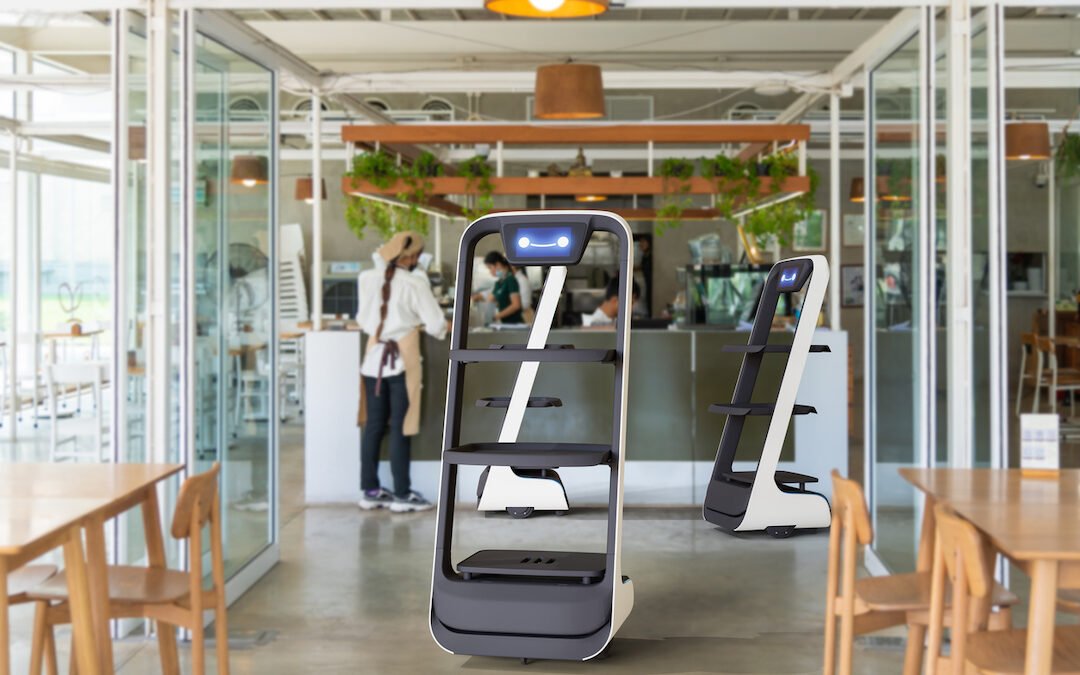As technology continues to evolve and permeate every aspect of our lives, it’s no surprise that the hospitality industry is also being transformed by robotics and AI.
From robot bartenders to smart rooms that adjust to guests’ preferences, technology is revolutionising the way we experience hotels, resorts, and restaurants.
As the hospitality industry is a key contributor to the economy, many businesses are embracing AI to provide customers with a personalised and efficient experience. Let’s take a look at how tech is changing the hospitality industry and what it means for businesses and customers alike.
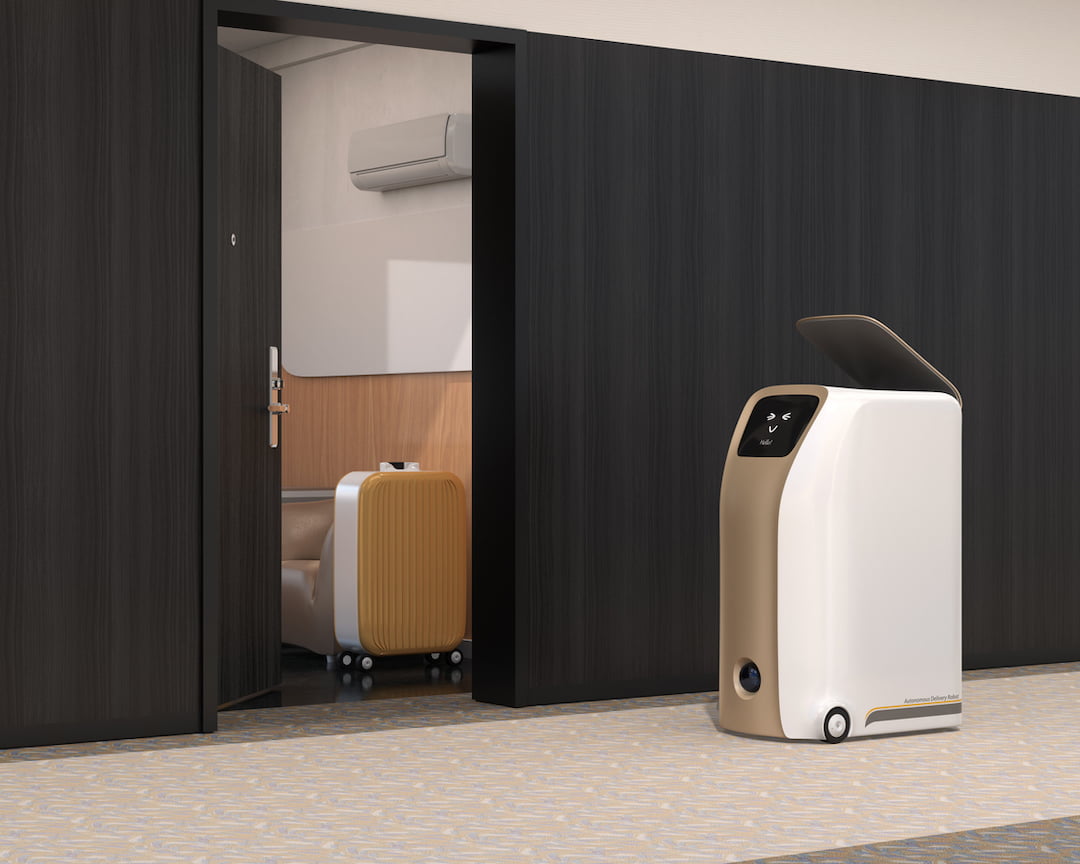
A delivery robot performing simple tasks in a hotel
Streamlining operations
Robotic process automation (RPA) is one of the most significant advancements in the hospitality industry. RPA is a technology that automates repetitive and time-consuming tasks, allowing staff to focus on more important responsibilities.
Hotels and restaurants use RPA to streamline operations, such as front desk check-ins, cleaning, and restocking. This technology helps businesses to save time, reduce labour costs, and improve efficiency.
Improved customer experience
The hospitality industry is all about providing excellent customer service. Technology and robotics are helping businesses to achieve this goal in a more efficient and effective manner. This includes the introduction of chatbots; computer programs that simulate conversation with human users. Chatbots can be used for a variety of tasks, such as making reservations, answering FAQs, and even ordering food. It’s all about enhancing the customer experience. They also provide instant responses and 24/7 availability.
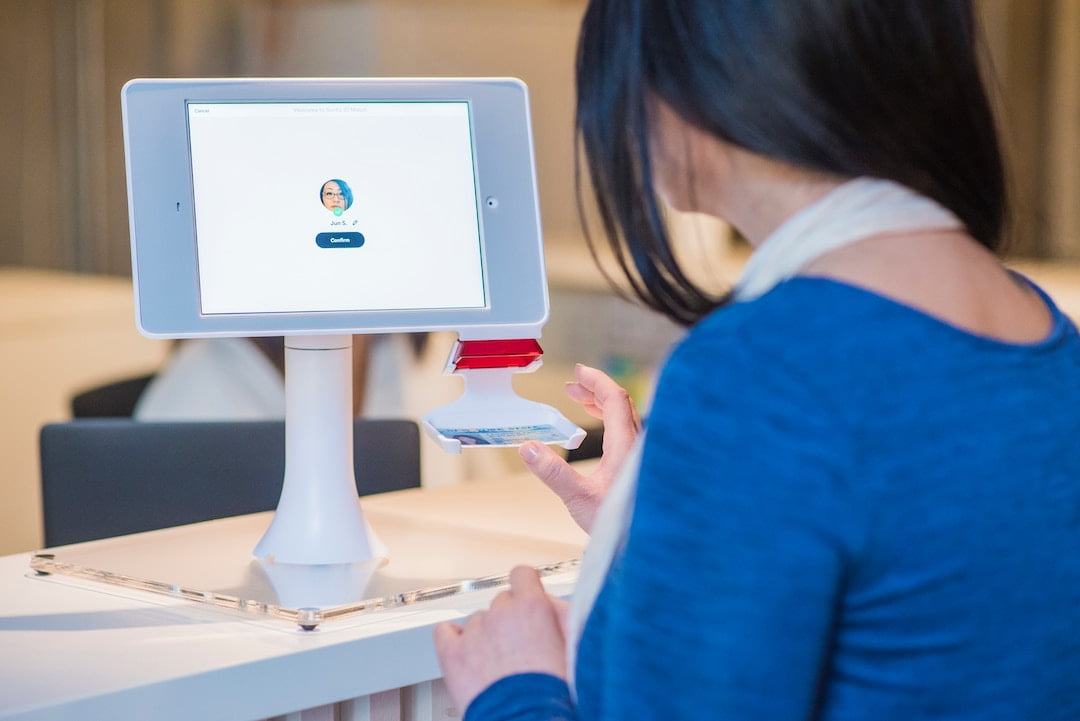
Personalised recommendations
With the rise of AI, hotels and restaurants can now provide personalised recommendations to their guests. AI algorithms can analyse customer data, such as past bookings, food preferences, and reviews, to suggest services and products.
A hotel can recommend local attractions based on a guest’s interests, or a restaurant can suggest dishes based on a guest’s dietary requirements.
Enhancing safety and hygiene
Robotics and technology have played a critical role in enhancing safety and hygiene measures in hotels and restaurants. Robots can be used for cleaning and disinfecting rooms and public areas. They can also be used for contactless delivery of food and beverages, reducing the risk of contamination. Technology such as sensors and cameras can also monitor compliance with safety protocols, such as social distancing when required.
Efficient inventory management
Robotics and technology are making inventory management more efficient, accurate, and cost-effective. “Smart shelves” can monitor stock levels and automatically reorder products when they run low. This technology eliminates the need for manual inventory checks and reduces the risk of overstocking or understocking.
AI-powered systems can analyse sales data and suggest the optimal amount of inventory to keep on hand, reducing waste and increasing profitability.
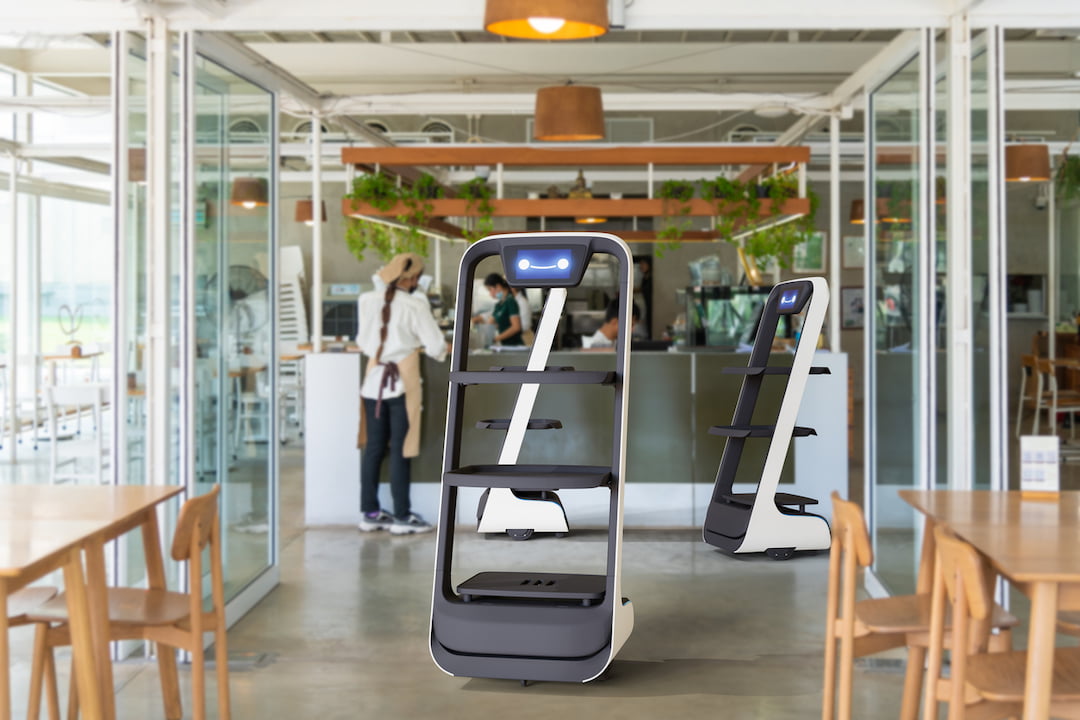
Autonomous waiter robot working in restaurant
Automation of food preparation
Robots can be a great help when it comes to food prep; such as chopping vegetables, mixing ingredients, and even cooking food. This technology helps to reduce labour costs, increase efficiency, and maintain consistency in quality.
Restaurants such as Dodee Paidang in Melbourne, use robots known as Bellabot to help with staffing issues. The Bellabot is able to carry many more plates than a waiter, and navigates itself around the tables, using lasers to prevent it from bumping into furniture…and people!
Smart room technology
Hotels are increasingly incorporating smart room technology into their rooms, enhancing the guest experience and improving efficiency. Smart room technology allows guests to control various aspects of their room, such as lighting, temperature, and entertainment, using a smartphone or tablet.
This technology also allows hotels to monitor and adjust room conditions remotely, improving energy efficiency and reducing costs.
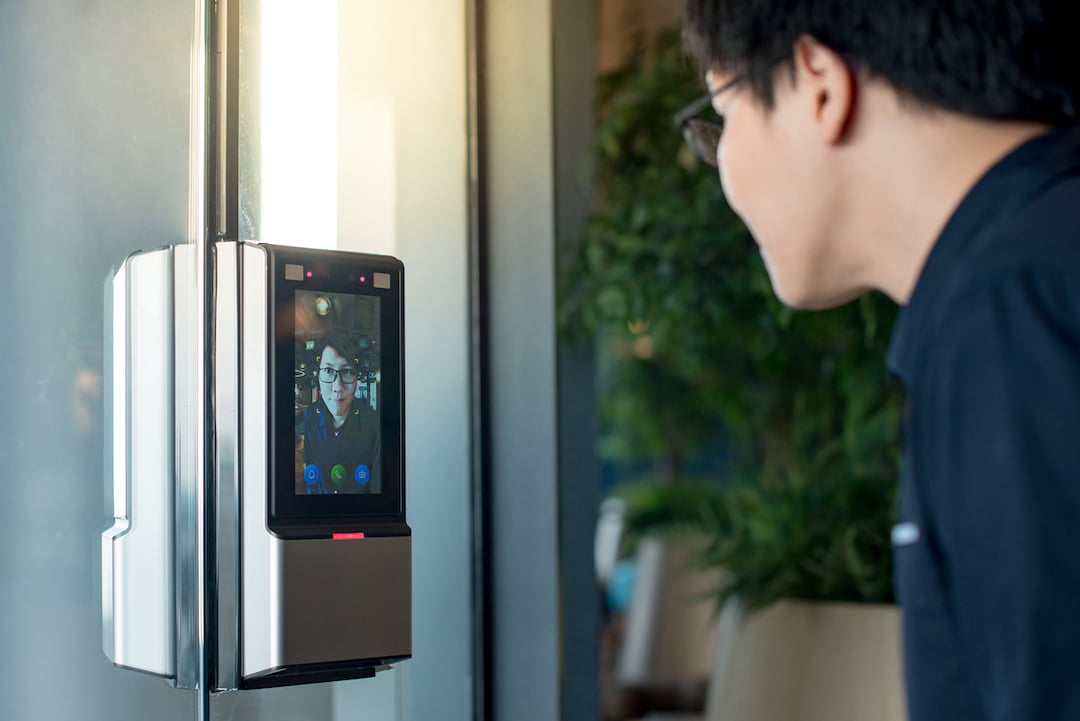
Facial recognition for a hotel
Facial recognition for check-in
Facial recognition is also being used in some hotels and resorts to streamline the check-in process. Guests can simply scan their face to check-in, eliminating the need for traditional check-in procedures, such as presenting identification and credit cards.
This improves the guest experience, and also increases security measures by reducing the risk of fraud.
IDS Next CEO Binu Matthews stated in a recent opinion piece, “Leveraging data and analytics can revolutionise the effectiveness of digital marketing and help personalize the guest experiences for hotels to improve the overall ROI.”
Robotic bartenders
Robotic bartenders are becoming increasingly popular in the hospitality industry; the machines can mix and pour drinks with precision and speed, without the need for human intervention. Robotic bartenders typically have a touchscreen interface that allows customers to select their preferred drinks and customise them to their liking.
But as fascinating as these AI developments are, there are still several things AI cannot do; it certainly isn’t able to develop new theories based on original insight or indulge in any kind of critical thinking. But, most importantly AI cannot empathise with people – a trait that is critical when it comes to customer service.
To learn more about the impact of technology on hospitality, click here.

